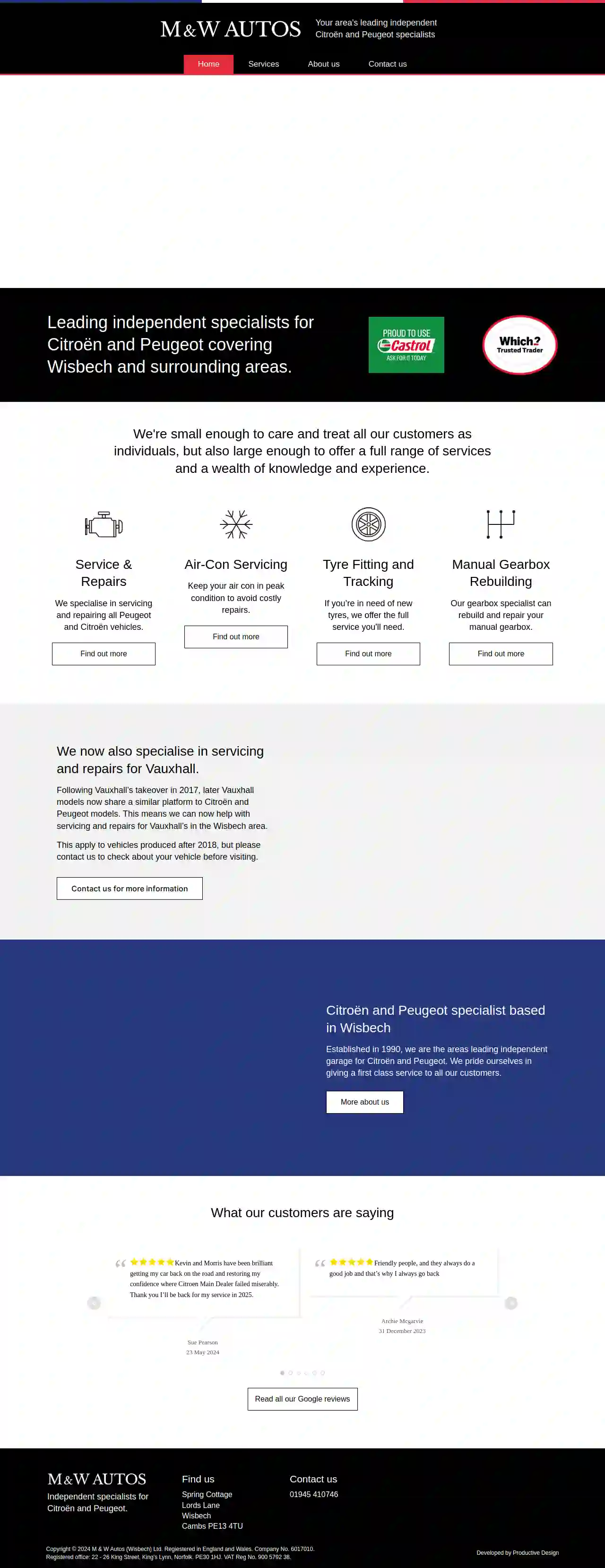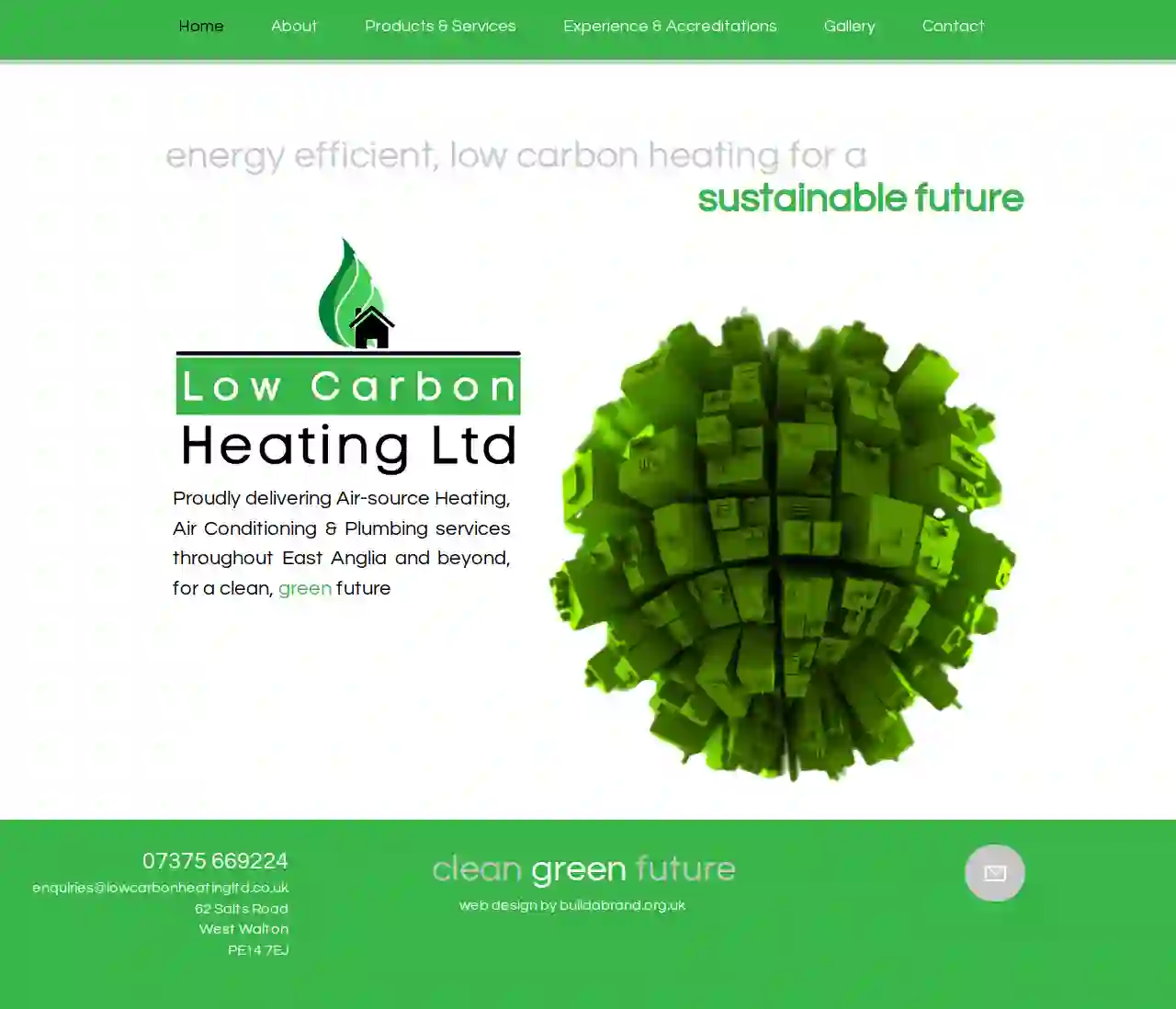AC Replacement Wisbech
Find the best AC Replacement in Wisbech
Get up to 3 New AC Unit quotes for your project today! Compare profiles, reviews, accreditations, portfolio, etc... and choose the best service.

EVO Air Conditioning
55 reviews20 Old Knarr Fen Drove, Thorney, PE6 0RJ, GBEVO Air Conditioning is a REFCOM registered Air Conditioning contractor based in Peterborough and covering surrounding areas. We provide a professional and reliable service. We have experience working in all types of buildings including Domestic properties, Commercial offices, Schools, Dentists and Industrial Units. We pride ourselves in offering affordable, energy efficient, all year comfort solutions to your home or business.
- Services
- Why Us?
- Gallery
Get Quote
M & W Autos (Wisbech) Ltd
4.755 reviewsWisbech, GB- Services
- Why Us?
Get Quote
Low Carbon Heating Ltd
162 Salts Road, West Walton, PE14 7EJ, GBLow Carbon Heating Ltd is a family-run business with over 30 years of experience in the heating and plumbing industry. We are proud to deliver energy-efficient, low carbon heating solutions for a sustainable future. We offer a range of services, including air-source heating, air conditioning, and plumbing, throughout East Anglia and beyond. Our team of qualified engineers is committed to providing high-quality workmanship and exceptional customer service.
- Services
- Why Us?
- Gallery
Get Quote- Mr
Mr gas and heating
4.858 reviews1000 W Shaw Ave, Suite 100, Clovis, 93720, GB- Services
- Why Us?
- Gallery
Get Quote - Dc
Dc plumbing and heating Wisbech
56 reviewsWisbech, GB- Services
- Why Us?
- Gallery
Get Quote - MA
MAC Heating & Plumbing
53 reviews123 Main St, City Name, 12345, GBAt [Business Name], we are dedicated to providing exceptional [services] to our clients. With [number] years of experience, our team of experts is committed to delivering high-quality results that meet and exceed our clients' expectations. Our mission is to [briefly describe the business's mission].
- Services
- Why Us?
- Accreditations
- Our Team
- Testimonials
- Gallery
Get Quote
Over 1,991+ HVAC Businesses on our platform
Our HVAC contractors operate in Wisbech and surroundings!
HVACCompaniesHub has curated and vetted the Best HVAC Contractors arround Wisbech. Find the most reliable contractor today.
Frequently Asked Questions about AC Replacement
- Pets
- Allergies
- High dust levels in your home
- Frequent use of the AC system
- Regular Maintenance: Regularly scheduled maintenance can significantly extend the life of your AC.
- Usage: Heavy use can shorten the lifespan.
- Climate: AC units in hotter, more humid climates tend to have shorter lifespans.
- Quality of Installation: A professional installation will perform better and last longer.
- Quality of the Unit: More durable units generally have a longer lifespan.
- Room size (square footage)
- Climate
- Insulation levels
- Window size and type
- Number of occupants
- Central AC Units: These systems use ductwork to distribute cooled air to multiple rooms or zones. They are a common choice for larger homes or commercial properties.
- Ductless Mini-Splits: Ductless mini-splits provide zoned cooling to individual rooms. They allow for personalized comfort levels.
- Window AC Units: Good for small spaces or single rooms and are installed in a window opening. They are relatively inexpensive but lack the efficiency and quiet operation of other models.
- Portable AC Units: Portable AC units offer a flexible cooling solution for single rooms. They vent hot air out through a window exhaust hose and are typically less energy-efficient than other AC types..
- Heat Pumps: Heat pumps provide both heating and cooling, using heat from the air for heating and cooling. Heat pumps are ideal for climates with mild winters.
- Geothermal Heat Pumps: Extracting heat from the ground or water, these systems offer exceptional energy efficiency. Though expensive to install, their operating costs are quite low.
How often should I replace my AC filter?
What is the average lifespan of a central air conditioner?
How do I calculate the right BTU for my AC unit?
What are the different types of AC units?
How often should I replace my AC filter?
- Pets
- Allergies
- High dust levels in your home
- Frequent use of the AC system
What is the average lifespan of a central air conditioner?
- Regular Maintenance: Annual or biannual tune-ups can significantly extend the life of your AC.
- Usage: Heavy use can shorten the lifespan.
- Climate: AC units in harsh environments tend to have shorter lifespans.
- Quality of Installation: A properly installed unit will perform better and last longer.
- Quality of the Unit: More durable units generally have a longer lifespan.
How do I calculate the right BTU for my AC unit?
- Room size (square footage)
- Climate
- Insulation levels
- Window size and type
- Number of occupants
What are the different types of AC units?
- Central AC Units: These systems use a network of ducts to distribute cooled air throughout the entire home or building. Central AC systems can provide consistent and comfortable cooling throughout your space.
- Ductless Mini-Splits: Ductless mini-splits provide zoned cooling to individual rooms. They consist of an outdoor unit (compressor/condenser) and one or more indoor units (air handlers) that are connected by refrigerant lines and electrical wiring..
- Window AC Units: These units are designed to cool individual rooms and fit into a standard window. They are a budget-friendly option but lack the efficiency and quiet operation of other models.
- Portable AC Units: Portable AC units offer a flexible cooling solution for single rooms. They vent hot air out through a window exhaust hose and are typically less energy-efficient than other AC types..
- Heat Pumps: These systems provide both heating and cooling, using heat from the air to provide year-round comfort. Heat pumps are ideal for climates with mild winters.
- Geothermal Heat Pumps: Extracting heat from the ground or water, these systems offer exceptional energy efficiency. Though expensive to install, their operating costs are quite low.